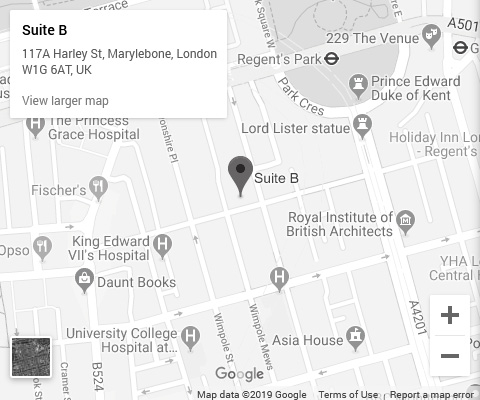-in-London-results-timeline,-HPV-positive-meaning-&-next-steps.jpg)
If you’re considering a private cervical screening (smear test) in London, you probably want two things: a calm, professional experience and straight answers—what the appointment involves, how long results take, what an HPV-positive result actually means, and when colposcopy is recommended. This guide explains the process step-by-step, using current UK guidance, so you can arrive prepared and leave with a clear plan.
First things first: what do we call it?
- The appointment you book is cervical screening, historically called a smear test. At the appointment, a clinician takes a small sample of cells from the cervix using a soft brush.
- In the lab, your sample undergoes HPV primary testing—that means the lab tests for high-risk HPV first. If (and only if) HPV is detected, the lab then looks at the cells (cytology) for any changes. Throughout this article, we’ll call that lab result the HPV test.
This approach focuses follow-up on those most likely to benefit and helps avoid unnecessary procedures when risk is low.
What your cervical screening (smear test) checks
Primary aim: find people at higher risk of cervical cell changes caused by high-risk HPV before symptoms appear.
How it works: The HPV test on your sample is the first step.
- HPV negative → no further cell analysis is needed this time.
- HPV positive → the lab examines the cells to see if any changes are present; this guides earlier recall or colposcopy.
Who should be screened and how often
- In England, people with a cervix aged 25–64 are invited for screening; the first invite usually arrives around age 24½ so you can attend from 25.
- From 1 September 2025, if you attend on or after that date and meet the clinical criteria, a negative HPV test generally sets your next test due in five years (this change extends 5-year intervals to ages 25–49 as well). If your last advice was a 3-year interval, you’ll stay on that timing until your next attendance.
- You may be invited sooner if HPV is found or if you’ve had recent abnormal results; those 65+ are routinely invited only if a recent test was abnormal or previous screening was incomplete.
- If you prefer not to wait for an invitation, a private smear can be booked directly for earlier reassurance.
What happens at your private appointment (step-by-step)
- Welcome & history: Your clinician confirms your details, last screening date, contraception/pregnancy status, and any symptoms (e.g., bleeding after sex, unusual discharge)
- The sample: You’ll lie comfortably as a speculum is gently inserted so the cervix can be seen. Using a soft brush, the clinician collects a small sample of cervical cells—it takes seconds. Mild discomfort or brief cramps are common; the test should not be painful.
- What you can do: Try to avoid screening during heavy bleeding; let your clinician know if you’re anxious or have had previous difficult exams - they can use more lubrication, a smaller speculum, or adjust positions to help.
- Afterwards: You can resume normal activities. Light spotting is possible for a day or so.
Results: how long they take and what they mean
How long: results are posted or shared securely. Timelines vary by lab, but many people receive results in 2–6 weeks. If yours take longer, it doesn’t automatically mean anything is wrong; delays do happen.
Result types and next steps:
- HPV negative: routine recall (now generally 5 years if you meet criteria from July 2025).
- HPV positive, no abnormal cells: repeat screening in 1 year. If HPV persists at 2 years, you’re typically referred for colposcopy.
- HPV positive with cell changes: you’ll be referred for colposcopy sooner to take a closer look at the cervix.
- Unclear/inadequate sample: you may be asked to repeat in about 3 months—this is common and usually just means the sample wasn’t readable.
Book Your Private Cervical Screening in London Today!
Get Faster Results and Expert Guidance on HPV-Positive Findings. Don’t Wait, Prioritise Your Health Now!
Prefer not to wait for routine invitations? Book a same-day private cervical screening or follow-up consultation at our South Kensington clinic. We’ll explain your results clearly and organise any next steps for you.
What HPV-positive really means
An HPV-positive cervical screening means high-risk HPV was found in your sample. It does not mean you have cancer. HPV is very common and can be dormant for years, which is why an HPV-positive result does not imply infidelity or recent transmission. The important thing is to follow the plan: repeat testing at the right time or attend colposcopy if advised.
If you’re referred: what to expect at colposcopy
Colposcopy is a focused examination of the cervix, usually performed in a hospital clinic. It feels similar to a smear but takes a little longer. The clinician applies liquids that highlight areas needing a closer look and may take a small biopsy. Many people get a verbal impression on the day; if a biopsy is taken, written results typically arrive in about 4–8 weeks. Depending on the findings (for example, CIN grades), you might simply be monitored or offered treatment to remove the abnormal cells.
Common concerns - answered plainly
- Bleeding after sex or between periods? That’s a symptom, not screening. Book a gynaecology appointment for assessment; you may still be offered screening if you’re due, but symptoms are investigated on their own merit.
- Pregnant or planning pregnancy? Screening is usually scheduled outside pregnancy unless your clinician advises otherwise; if you’re already pregnant and due screening or follow-up, your clinician will discuss safe timing.
- Anxious about pain? Tell your clinician in advance - there are options (smaller speculum, different positions, more lubrication, pausing whenever you need). The sample itself is quick.
FAQs
1) What exactly is the difference between a smear test and the HPV test?
Your smear test (cervical screening) is the appointment where a clinician collects your sample. The HPV test is the laboratory test done on that sample. In England, labs use HPV primary testing and only examine the cells under a microscope if HPV is detected.
2) How soon will I get private cervical screening results?
Timings depend on the laboratory pathway, but many people receive results within 2–6 weeks. If your result takes longer, contact the clinic for an update.
3) What does “HPV positive, no abnormal cells” mean for me right now?
It means HPV was found but no cell changes were seen. The usual plan is a repeat test in 12 months to see if your body clears the virus (which is common). If HPV persists at 2 years, colposcopy is typically recommended.
4) When am I referred for colposcopy?
Referral happens if HPV is present and cell changes are suspected/confirmed, or if HPV persists on repeat screening according to programme rules.
5) How long do colposcopy and biopsy results take?
You may be told on the day if everything looks normal. If a biopsy is taken, written results usually arrive in about 4–8 weeks.
6) I’m 24 and feeling anxious—can I screen sooner than the invitation?
The programme invites people from age 25 because that’s where the balance of benefits and harms is best. If you have symptoms, book a gynaecology appointment for assessment; screening and symptom investigation are different pathways.
7) Does an HPV-positive result mean my partner has been unfaithful?
No. HPV can remain dormant for years, so a positive test does not prove recent transmission or infidelity. Focus on the follow-up plan instead.
8) If my HPV test is negative, when is my next screen due now?
If you attend on or after 1 July 2025 and meet clinical criteria, a negative HPV test generally means your next screen is due in five years. If your previous advice was a 3-year interval, you’ll remain on that timing until your next attendance.
Quick recap:
- Book the appointment = cervical screening (smear test).
- What the lab does = HPV test first, then cell checks only if HPV is positive.
- Results usually arrive within a few weeks; HPV negative = routine recall; HPV positive = either repeat in 1 year or colposcopy depending on the cell result and persistence.
Ready to book? If you’d like same-day screening or a calm review of recent results, we’re here to help—clearly and without jargon.






-in-the-UK.jpg)

